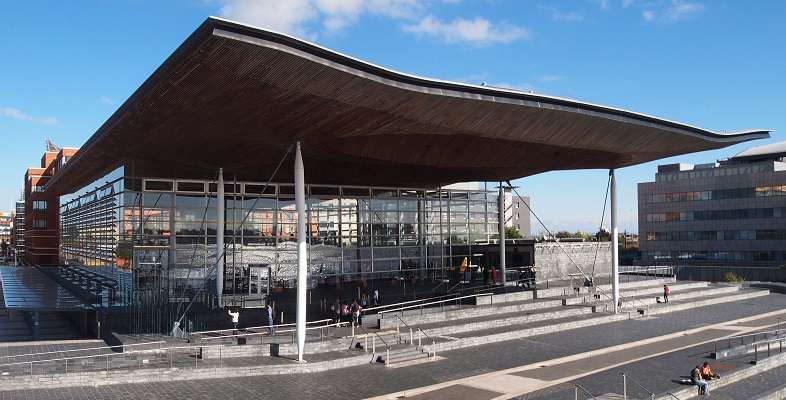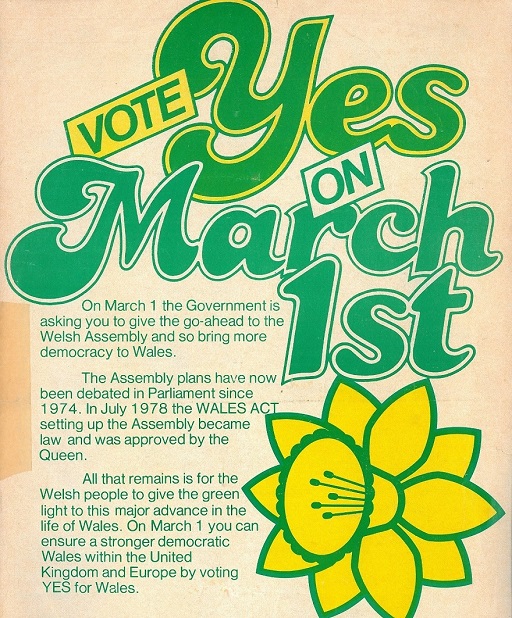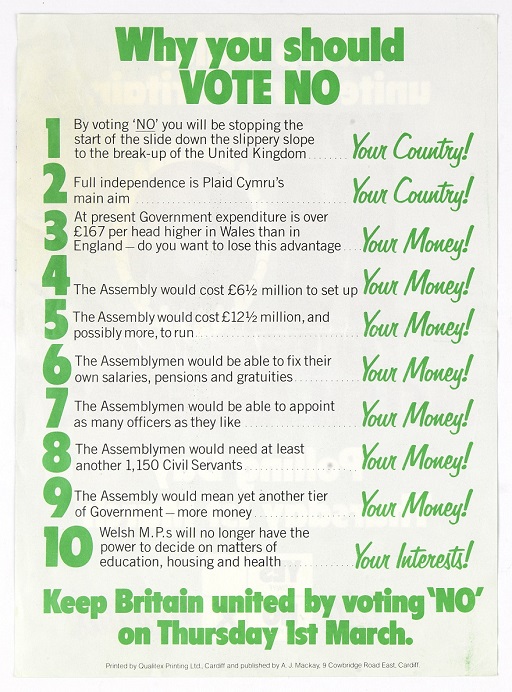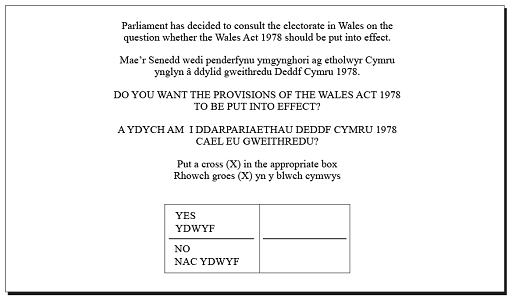2.2 1979
In 1969, the Royal Commission on the Constitution under Lord Kilbrandon was established to consider options for the future of the United Kingdom amid growing support for nationalist parties. Gwynfor Evans won Plaid Cymru’s first parliamentary seat in the 1969 Carmarthen by-election, Winnie Ewing took Hamilton for the SNP in 1967. The Kilbrandon review suggested legislative and executive devolution to Scotland and Wales and advisory Regional Councils for England. This plan was rejected as too bureaucratic and ill-advised in economic terms.
Revised plans for devolution to Scotland and Wales were subsequently brought forward. In 1974, a plan for Welsh devolution which involved executive functions being devolved to a Welsh Assembly of 72 members, operating through a committee system and led by a Chief Executive was published. The plan was subject to a referendum.
Activity 1 Referendum (1979)
The referendum was held on 1 March 1979. Take a look at these campaign materials for both sides.
How would you vote? Make your decision, then reveal the discussion below to find out the results.
Discussion
| Do you want the Provisions of the Wales Act 1978 to be put into effect? | ||
|---|---|---|
| Response | Votes | % |
| Yes | 243,048 | 20.26% |
| No | 956,330 | 79.74% |
The referendum failed.



